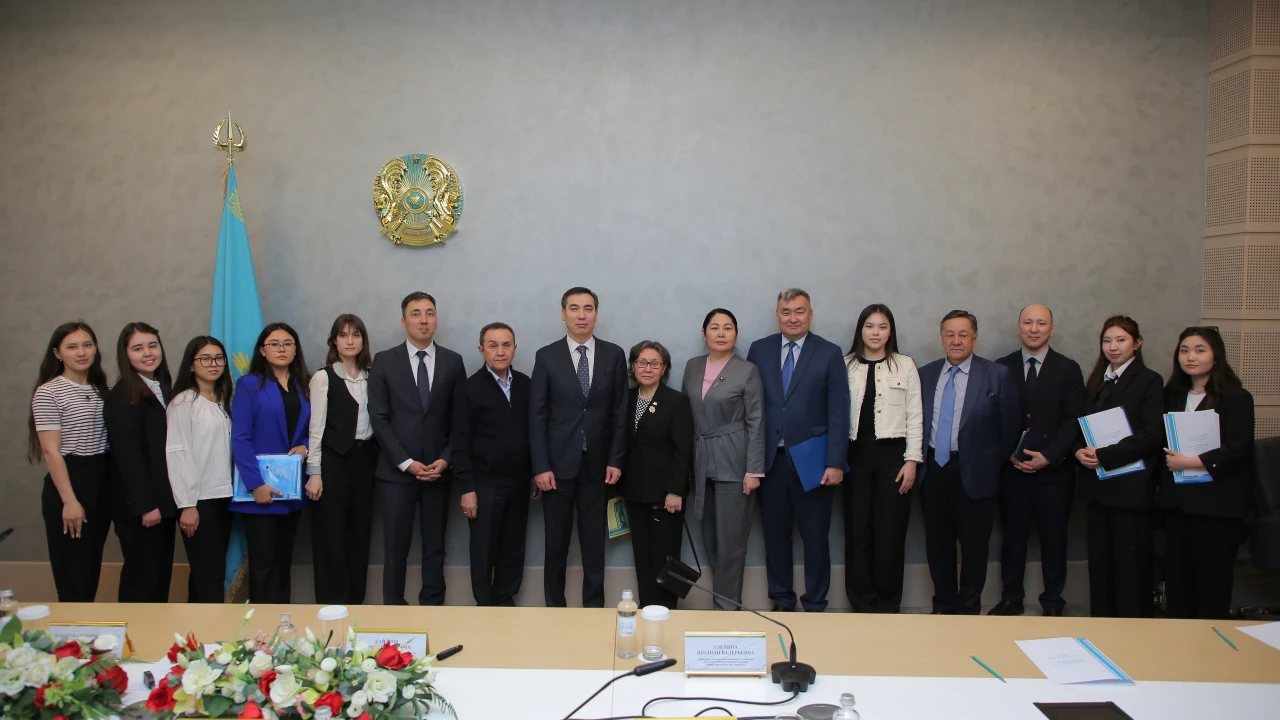
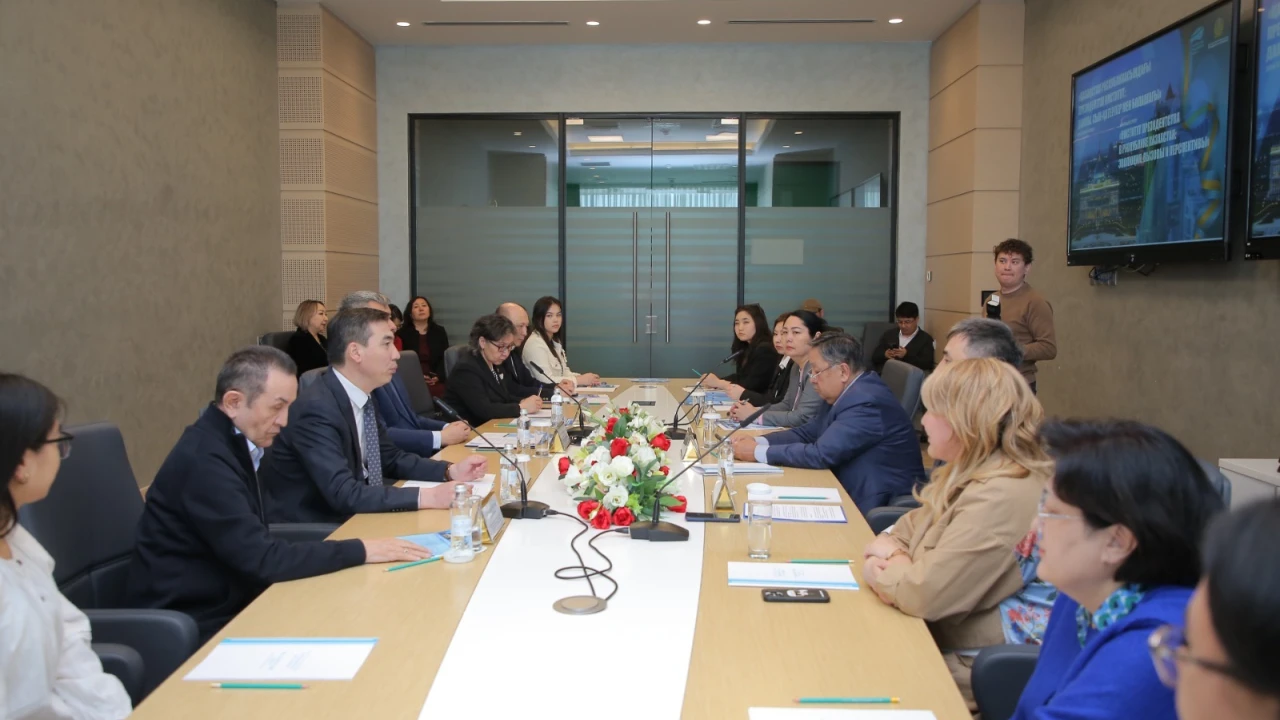
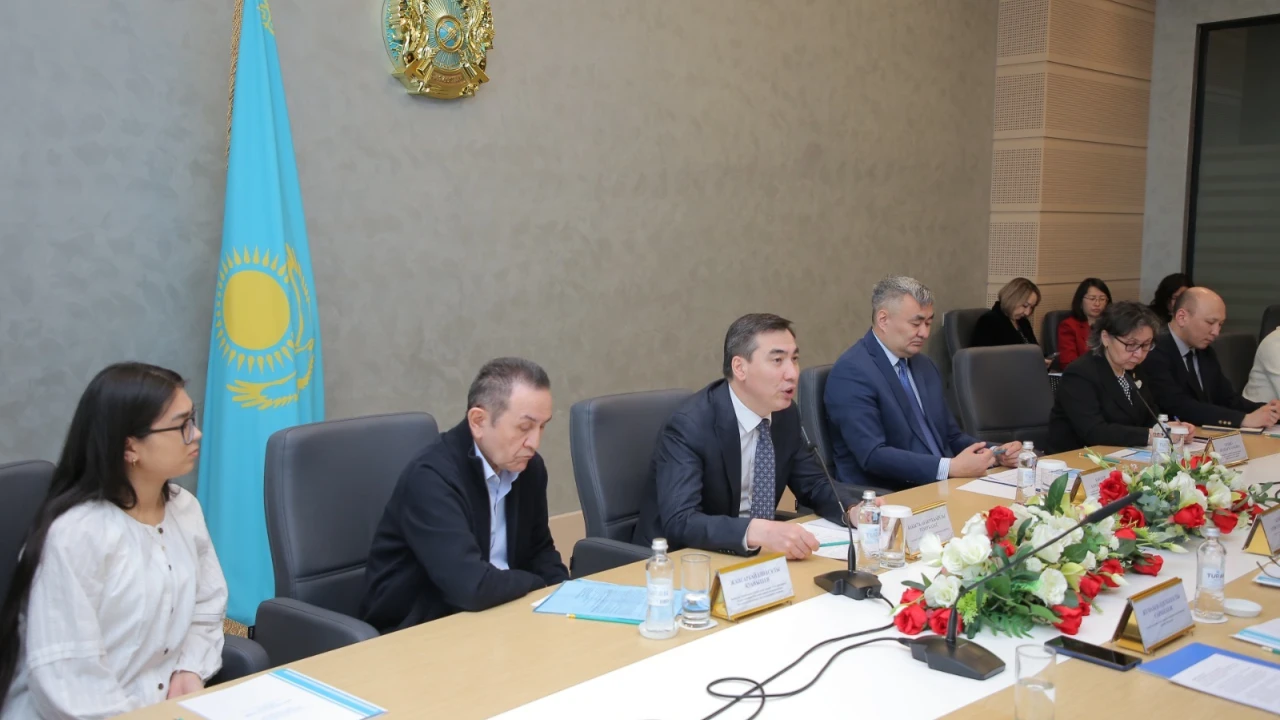
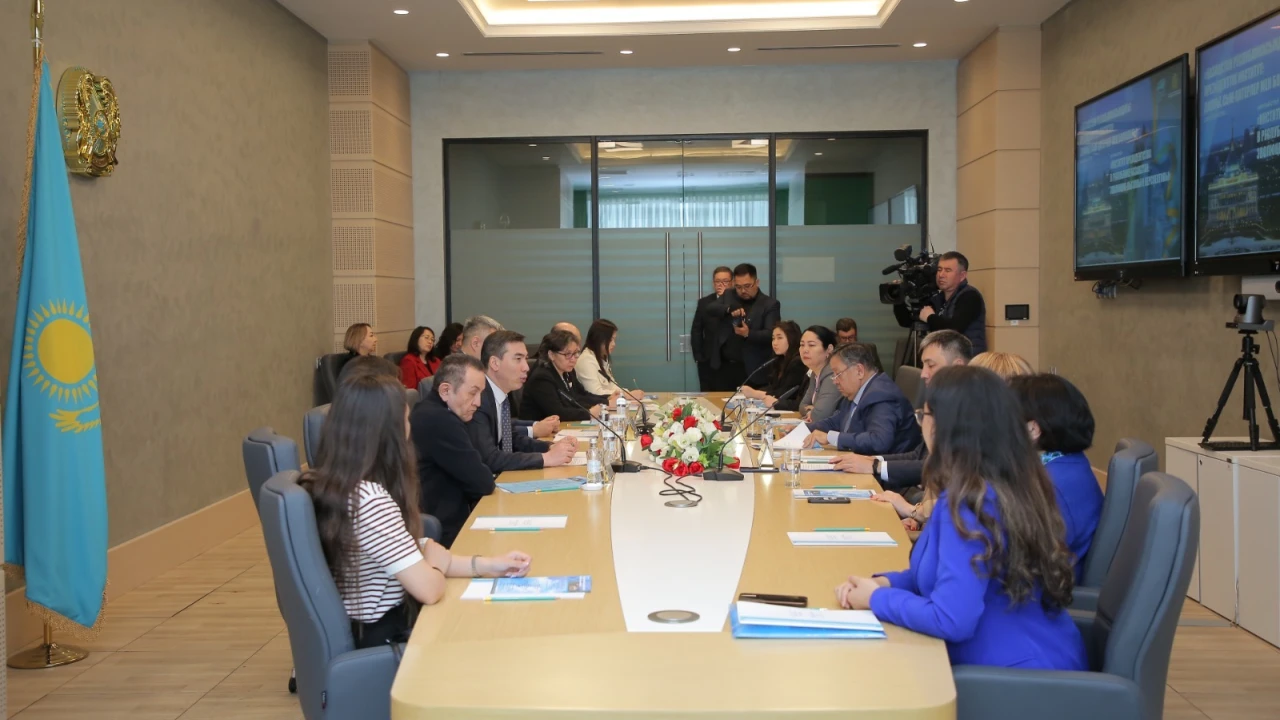
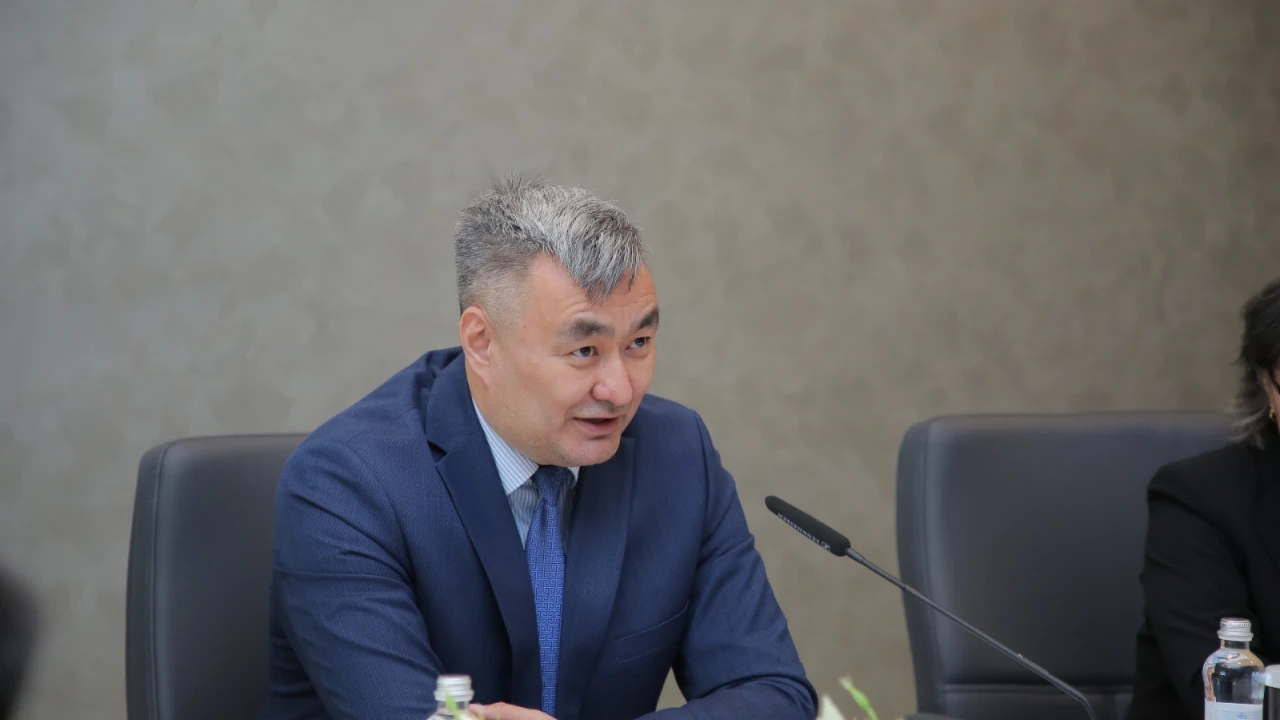
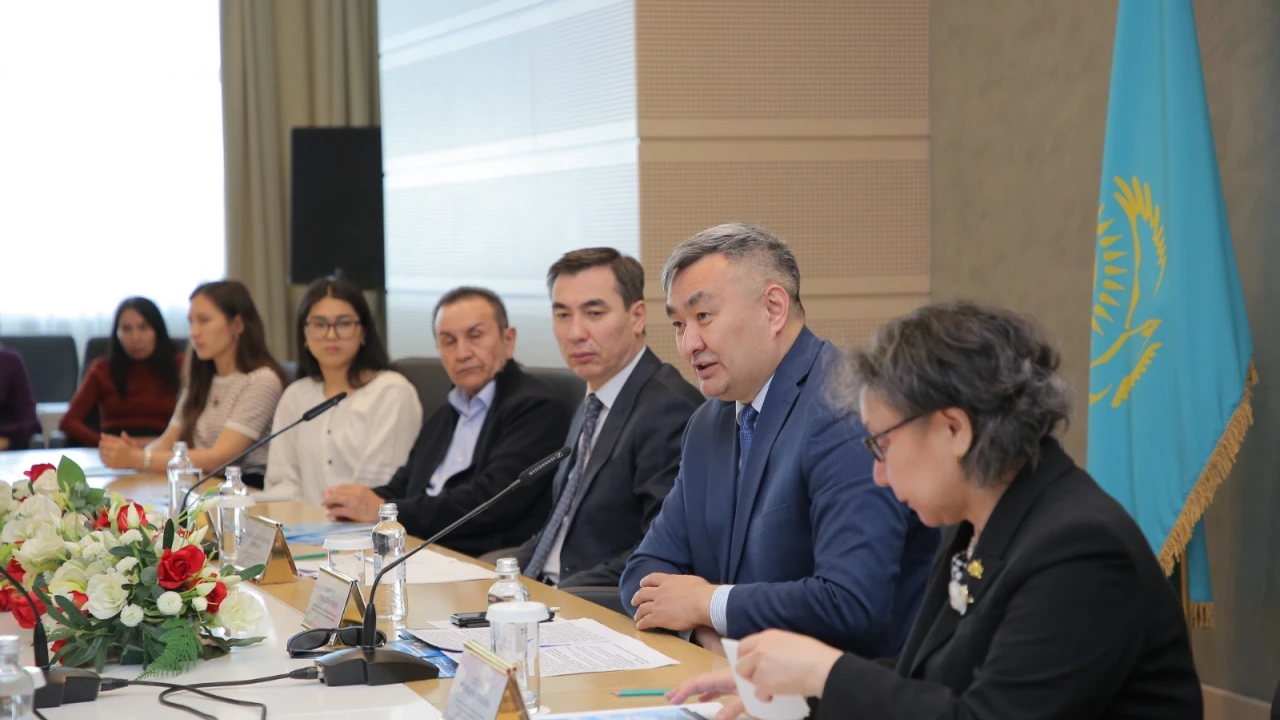
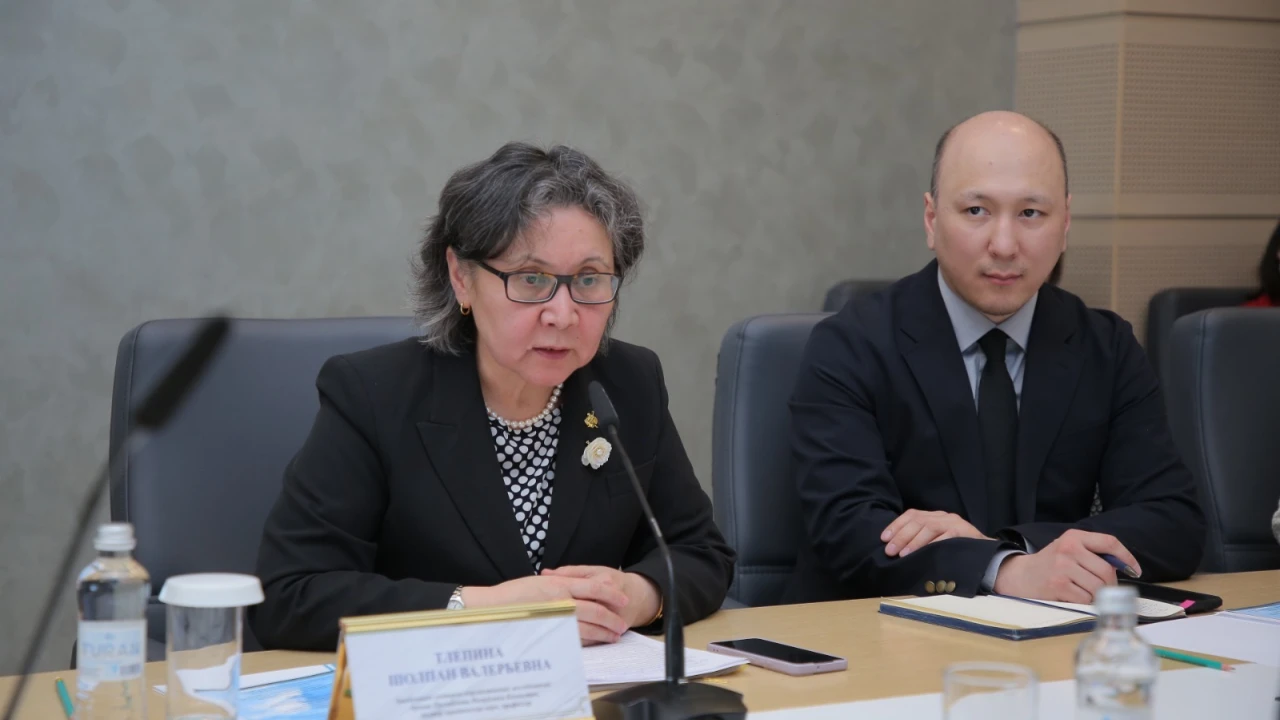
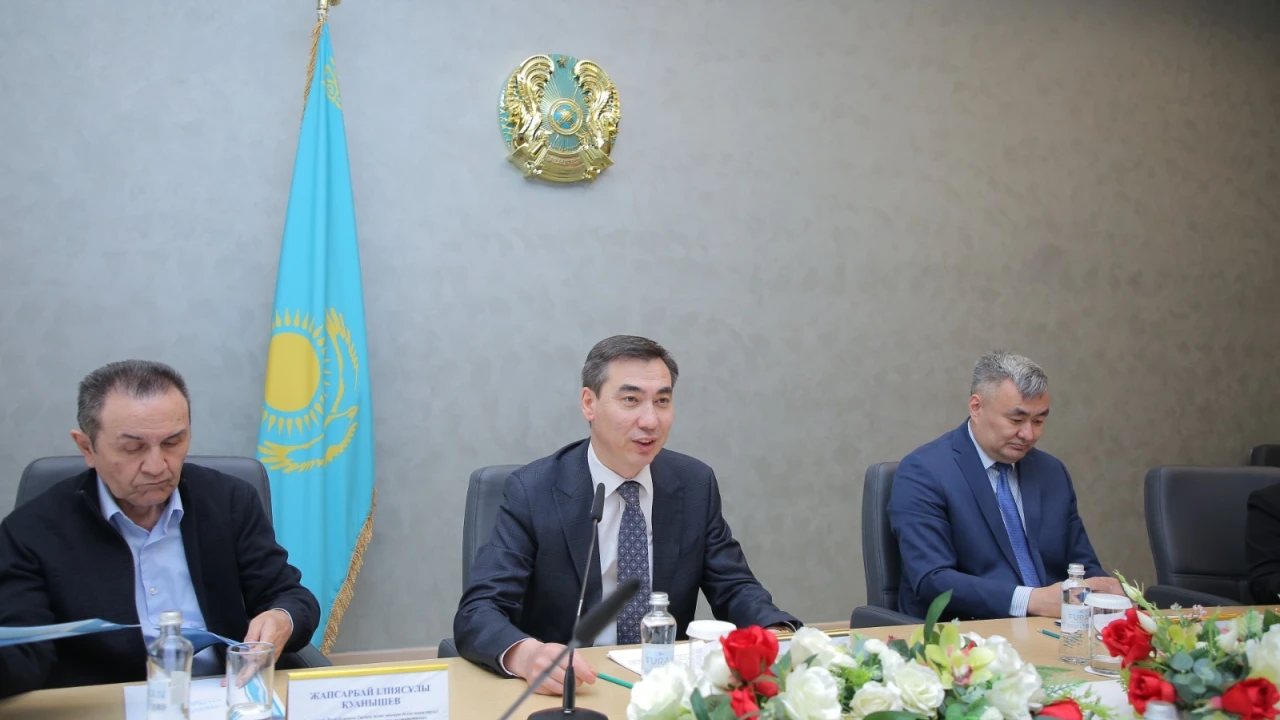
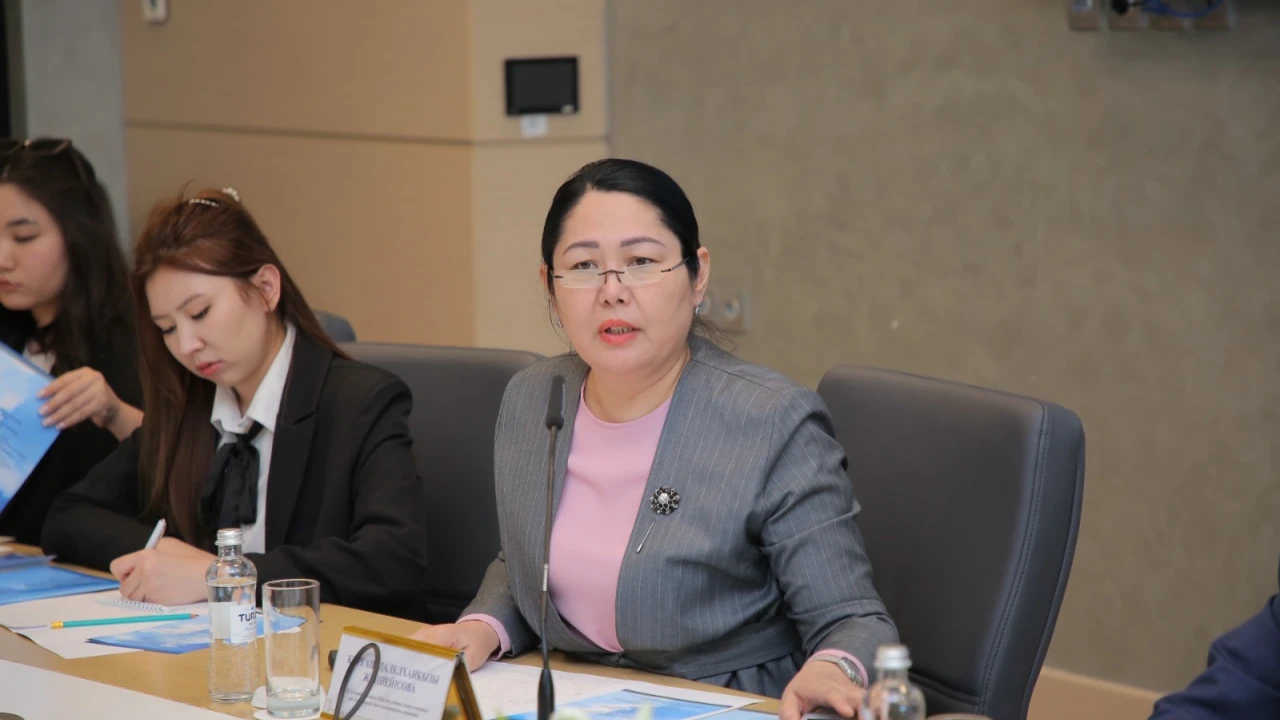
A roundtable titled "The Institution of the Presidency in the Republic of Kazakhstan: Evolution, Challenges, and Prospects" was held at the Presidential Center of DPA RK to mark the 35th anniversary of the establishment of the institution of the presidency in Kazakhstan.
"The institution of the presidency in the Republic of Kazakhstan holds a central place in the structure of state power, serving as one of the key factors of political stability and strategic development. It is one of the core institutions of our political system, shaping the country’s development over the past three and a half decades. Today, on April 24, we celebrate the 35th anniversary of the establishment of the office of the President in Kazakhstan. Over the years, we have witnessed the evolution of the political model, passing through several key stages. This includes the formation of the institution in 1990, the transformation of presidential power into a super-presidential model from 1995 to 2007, and a liberalization phase from 2007 to 2017. Since 2019, we have entered a phase of political transformation marked by active democratic reforms and a redistribution of powers. The 2022 Constitutional Reform, which marked a new stage in the country's development, played a pivotal role in this process. The changes and amendments affected more than 30 articles of the Constitution. These reforms primarily aimed to decentralize power and shift from a super-presidential system to a presidential republic with a strong parliament. Emphasis was placed on expanding citizen participation in state governance and fostering a new political culture.
The reform transformed the power structure: a single seven-year presidential term was introduced, the head of state was required to be nonpartisan, parliamentary and local government (maslikhat) powers were enhanced, and mechanisms for greater public accountability were implemented. The formula 'A strong President—an influential Parliament—an accountable Government' was put forward. These processes are part of an evolutionary path reflecting society's aspiration for more democratic forms of governance. The Kazakh presidency has demonstrated its capacity to adapt and evolve. Today, it faces new challenges—demands for greater transparency, accountability, dialogue with civil society, real rule of law, and effective responses to current geopolitical and socio-economic changes," said Bakytzhan Temirbolat, Director of the Presidential Center.
In her speech, Sholpan Tlepina, Head of the Sector of Perspective Studies of the Archive of the President of the Republic of Kazakhstan, dwelt on the evolution of the presidency in Kazakh society, the continuity of political thought and the introduction of the presidency at the beginning of the XX century, its legalization at the end of the century. In addition, the speaker gave the results of the analysis of legal acts of the last years of the existence of the USSR and the first years of the post-Soviet period on the eve of introducing the institution of the presidency.
It is worth noting that the event also addressed pressing issues related to the evolution of presidential power in the Republic of Kazakhstan, including the constitutional and institutional aspects of presidential authority and the role of the President in ensuring political stability in the country.
“Over the years of Independence, the presidential institution has become the core pillar of the state system, ensuring the country's stability and development. Today, amid global geopolitical instability, escalating trade wars, and volatility in international markets, the stabilizing role of the presidency is once again of particular importance,” said Zhumabek Sarabekov, Acting Director of the Institute of World Economy and Politics.
The institution of the presidency in Kazakhstan has undergone several stages of development. Historically, the fate of presidential power in Kazakhstan, its origins and further development are connected with the Law of the Kazakh SSR of 24 April 1990 ‘On the Establishment of the Office of the President of the Kazakh SSR and Introduction of Amendments and Additions to the Constitution of the Kazakh SSR’. This significant event had a decisive impact on the formation of the political system of an independent state and ensured the continuity of state power. In Kazakhstan, the evolution of presidential power became the driving force behind the country's accelerated development. The logic of its transformation at each stage was objectively necessary and allowed the country to overcome the challenges and threats to its independence.
In an interview with the newspaper ‘Ana tili’ in January this year, the country's president, K.K. Tokayev, noted that ‘the presidential form of government now and in the near future is the most optimal for Kazakhstan’. This emphasizes the role of the presidency as a guarantee of political stability, effective governance, and strategic development of the republic in the face of global external and internal challenges of modernity.
During the session, speeches were also made by the Executive Director of the Institute of Parliamentarism Almas Kanatov, Chief researcher of the Institute of State History of the Ministry of Science and Higher Education of the Republic of Kazakhstan Zhapsarbay Kuanyshev, senior lecturer of the L.N. Gumilyov Eurasian National University KargashZhanpeisova.
Over 40 participants attended the event, including representatives of state bodies of the Republic of Kazakhstan, research institutions, universities, and experts.
At the conclusion of the roundtable, an electronic compilation of the presentations from the speakers will be prepared.



